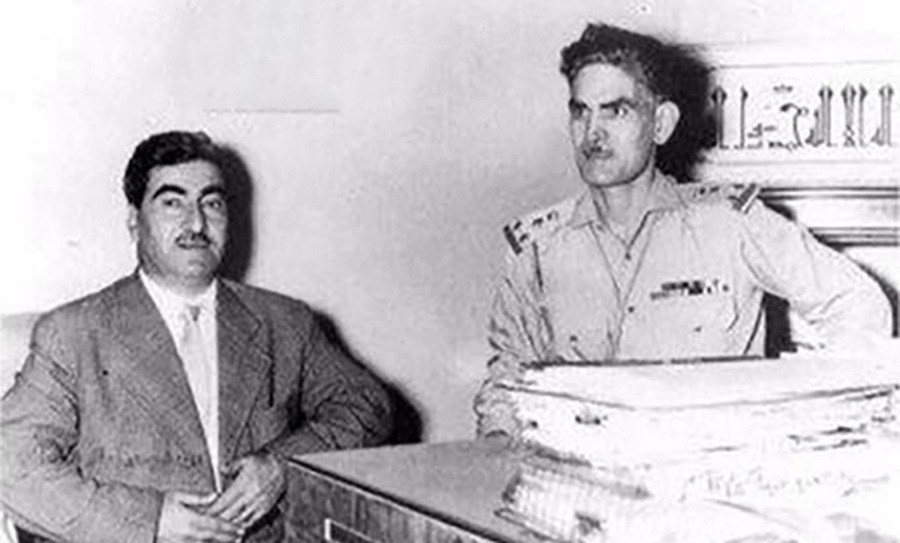In the Kurdish revolutions that took place in the 20th century, according to the narration of all the historians and political researchers who have written about the political events of Kurdistan, it seems that none of the Kurdish revolutions were founded based on individual interests, inhuman and unjust aims; on the contrary, despite all the shortcomings and even the losses they had, they shared one important point and that is the achievement of Kurdish human rights based on human rights laws and following the principle and coexistence of neighboring nations and partners. It is evident from the will, actions, and decisions of all Kurdish leaders, since the beginning of the 20th century, and they have declared with their parties and political statements that the Kurdish struggle has been a framed and clear struggle for achieving the national rights of the Kurdish people and living a peaceful life with those neighboring nations or those who are connected with the Kurds in political geography. The narration of "Masoud Barzani" in the first part of the third volume of the book, "Barzani and the Kurdish Liberation Movement", describes the revolution of September 1961 which shows us some of that truth.
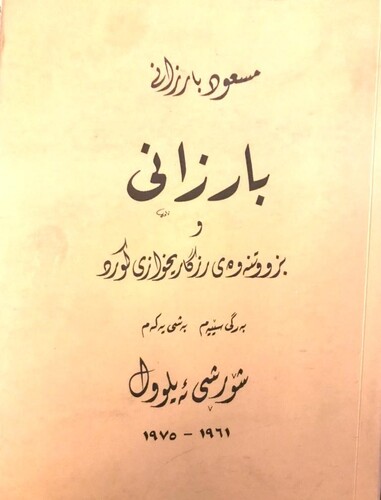
First of all, Masoud Barzani raises an ethical issue in politics and as a wish, he talks about the morality that shows the political style and the type of politics of the Kurdish revolutionaries in the 20th century. That is, since the authorities of the ruling countries in Kurdistan have established their politics based on deception, persecution, and lies, based on Barzani's narration, they were grateful for the very few positive actions that the non-Kurdish politicians had done for the Kurds. Thus, Barzani begins his narration with this wishful statement: "I wish the revolution of September had not happened when Abdul Karim Qasim was in charge, but rather it would be better if the revolution had happened before or after him." Why? How did Abdul Karim Qasim begin his work as an open-minded politician who made connections with the KDP and the Barzan tribe on a political basis? He removed the hardships and difficulties imposed on the Barzani's political leaders. For example, he canceled "Sheikh Ahmad Barzan" and other Barzani leaders' imprisonment. He brought back Mullah Mustafa Barzani to Iraq after many years of exile to the Soviet Union being welcomed with dignity by Qasim as a great national and political leader. This means that at the beginning of his career, Abdul Karim Qasim created an open window in the political atmosphere of Iraq at that time. This new opening and political space provided a sense of happiness for all the Iraqi political forces, especially Kurds who had been victims and sacrificed many lives for decades. According to this book written by Masoud Barzani and generally all the historical books about that time's politics, for the first time Kurds in Iraq and in general in all parts of Kurdistan are recognized by the central government and they were considered to be political partners.
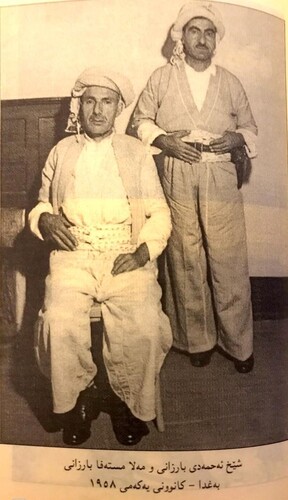
A wish that Masoud Barzani wanted and can be anchored in this book is that the Kurds not only did not want to continue fighting, conflict, and chaos, but if they had an opportunity in a very short time they would have been recognized as their political partners by the central government, the Kurds have done their best to maintain this balance and create a basis for the unity between the Kurdish nation and the ruling nation over the country.
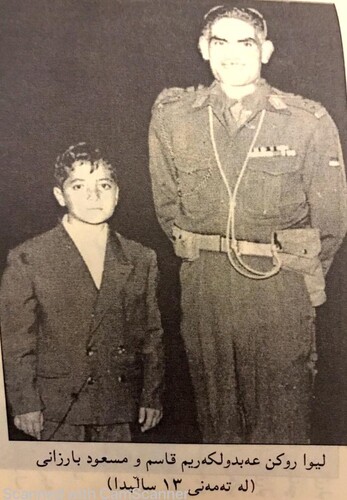
In this narration, the efforts of Mullah Mustafa Barzani and Sheikh Ahmad Barzani to maintain the peaceful and civil situation that Abdul Karim Qasim had created by a decision can clearly be seen. However, like all other political leaders of the dominant nations, Abdul Karim Qasim remained on this political decision of his for a short while and after seeing the dignity and respect of the Kurdish political leaders and the people of Kurdistan welcoming their leaders together and many other reasons he stepped back from his decision. Abdul Karim Qasim's step back from his decisions about the Kurds and all those resolutions that were about the political partnership between Kurds and Arabs in Iraq's geography can have psychological and political reasons. The political reasons are both influenced by the neighboring countries and the atmosphere throughout Iraq that had witnessed the warm welcoming of Barzani to resulted in Abdul Karim Qasim regretting his decision.
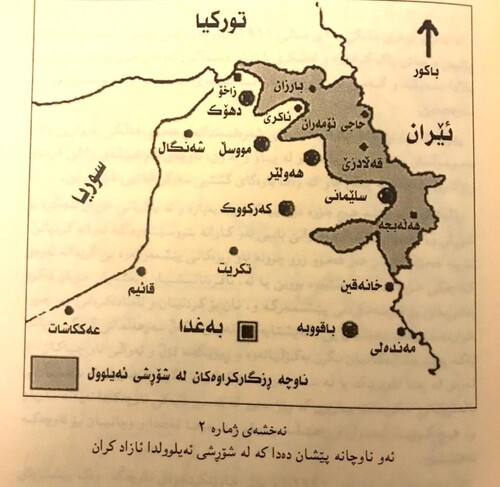
Obviously, when Abdul Karim Qasim began his work, like any other political leader of the occupying countries of Kurdistan, knew the history of the Kurdish revolutions in Iraq. He knew the power and capability of that liberation revolution. Abdul Karim Qasim used the power that PDK had at that time and Barzani's influence among all the social classes of the Kurdish society and for a while when his leadership was not established completely, he thought that he could gain political credit among large population of Iraq that was the north of Iraq, Kurdistan, by being in relationship with a well-known figure such as Barzani. However, when he was surrounded by the other political forces of Iraq, he stepped towards a way that like any other political leader of the occupying nations of Kurdistan, he decided to be independent of the power of the Kurdish revolution and he thought he could dominate that part of the Iraqi land known as Kurdistan via military operations without giving the Kurds any human rights they deserved and bring those parts under his control. Based on this understanding on the one hand, and the engagement of the neighboring governments inhabited by Kurds such as Iran and Turkey, he decided to withdraw from all its promises to Barzani and the Kurdish revolution. The neighboring governments, especially the Pahlavi monarchy have always prevented the Kurds from the southern part of Kurdistan from gaining an understanding with the central government, and in the next parts of this article we will discuss this matter more elaborately; so, of course, the Pahlavi government must have interfered in this historical opportunity playing their role to disturb Kurds and Arabs mutual understanding.

